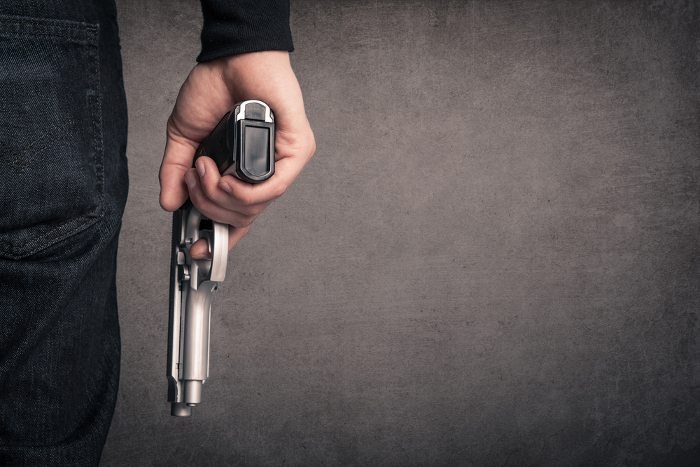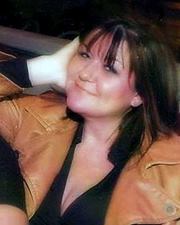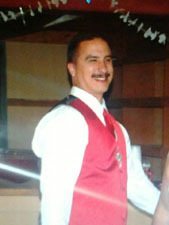A Call for Justice Over a Mass Shooting in Indian Country
If non-Native American communities, state governments, and organizations can quickly surround non-Native families suffering such a loss with warmth and kindness, then they should do the same when it comes to Native Americans and the families in their communities.

In February, a mass shooting happened in Indian Country at Cedarville Rancheria in northeastern California. Two people were injured and four were killed. One victim was only 19 years old. A group of children, including a 5-day-old, were present.
Like many small and even large tribal nation communities, most of the people at Cedarville Rancheria were related to one another. And somehow that connection seemed to become the focus of reports coming out of the region following the devastating event. As with many mass shootings, people seemed most interested in what motivated a crazed person to grab some guns and keep shooting until all the bullets were gone. Media outlets didn’t focus much attention on the beautiful and innocent human beings who were killed, but instead focused on trying to find motivations that could explain what can essentially never be explained in a way that makes sense of a senseless tragedy.
President Obama wrote letters of condolence to the families in Cedarville Rancheria who had lost their loved ones. Most of the people who received his letter were there when the shooting happened.
The tribal nation had about 35 citizens, and was part of a small community, with the nearest two towns comprising only 3,500 people. The townspeople knew of the Native Americans and what had happened to their people during the shooting. The alleged shooter, Cherie Rhoades, was in the community’s jail, and the State of California had taken over criminal jurisdiction in the case. However, the town or county responsible for seeking justice on behalf of the Native Americans did little to make a gesture toward the victims’ families, according to a local source. And, despite initial reports, it seems the townspeople fell back into resenting the local Indigenous people. California Gov. Jerry Brown did not write, and seems to have no intention of writing, a letter of condolence.
It seems odd to Natives in Indian Country that local townspeople and even the state’s governor failed to show them the kind of support non-Native American communities seem to receive when one of their own is shot. Is there any reason good enough for their behavior to be acceptable?
If non-Native American communities, state governments, and organizations can quickly surround non-Native families suffering such a loss with warmth and kindness, then they should do the same when it comes to Native Americans and the families in their communities.
There is a real fear among some victim’s family members and other Native Americans that no one cares enough to do what is right. A general sense of disconnect from showing basic human compassion flows from all the coverage of the shooting. Outright racist and stereotypical comments—like “pow WOW” and “She’um drink too much Crazy Horse!” and “Most Indian reservations are full of drunks, stray dogs everywhere and they chase each other with bows and arrows”—go unchecked and are numerous. It is little wonder how a reclusiveness has invaded the small nation and made many victims’ families silent to mainstream news. This can be coupled with commentsposted in response to a piece that appeared at IndianCountryTodayMediaNetwork.com that range from “This is awful news” to some victim-blaming in the form of projecting long-standing issues like Tribal Nation disenrollment and corruption fears onto the victims who are blameless.
It’s unclear what to do about the silence that’s come from inter-Tribal Nation leadership in matters of emergency crisis situations. The Bureau of Indian Affairs, the only such emergency crisis entity that isn’t law enforcement or first responders, made a statement about our strength and resilience but also sent the message to “move on.” Most of the Native Americans I talk with feel, as I do, that the shooting was a bleed over from the string of mass shootings that have swept through this country because we are not as separated as many would like to think—we are, after all, within the U.S. borders. But this time the people who were lost in the shooting became lost again in a bundle of apathy and vicious commentary. However, they shouldn’t be. People like Shelia Russo, Rurik “Two Bears” Davis, Angel Penn, Glenn Calonico, Melissa Davis, and Monica Davis—the victims of the shooting—cannot be forgotten, and now is not the time to “move on.”
Shelia Russo’s husband, Philip Russo, has spent much time and effort seeking justice for his wife and making sure the victims and what they stood for does get remembered. In a piece for the Huffington Post in May, he wrote:
When my wife Shelia was murdered, the world as I had come to know it and the future she and I had hoped on were violently brought to an end by a bullet. I want everyone to know Shelia for the smart, funny, altruistic woman she was and what a crime it is for the world to lose her. My wife died a hero, and I want people to know that. I don’t want the Alturas shooting to be forever defined by the face of a despicable murderer and thief. When people talk of the tragedy in Alturas I want them to think of Shelia and the names and faces and the stories of the three other lives lost that day.
In a more recent piece, he wrote:
My source of strength comes from my love for Shelia and my commitment to keep fighting for her. I keep a photograph of Shelia on the dresser in our bedroom. I look her in the eyes every day and ask myself if I’ve fought hard enough for her. I know that Shelia wouldn’t want anybody to feel sorry for her and she certainly wouldn’t want me feeling sorry for myself. What Shelia would want is for me to make sure this doesn’t end up as some tragic story but instead, to fight hard and steer this back on to a positive course and to use this experience to help others. That’s the kind of person Shelia was and that’s what Shelia always did best.
They had all come together that day to rid themselves of a treacherous person, Cherie Rhoades, who was suspected of embezzlement and betrayal—two things that are not uncommon and have a long and bitter history in Indian Country. Those problems have been around since the days of the corrupt “Indian agent” who would take the food that was to be provided to Native Americans at no cost per U.S. government treaty agreements and sell less than a third of it to them. They would then sell the rest for profit and come back sometime later and steal the food they originally sold to the Native Americans. This of course led to starvation. This type of total resource taking has continued in recent years, when many Tribal Nation elected leaders, with the help of the others, were skimming money away from their community, including family members, for themselves. Most of the time they have gotten away with it or had little more than a slap on the wrist.
Rhoades’ motivation doesn’t matter. What matters is that all her crimes get answered for. What matters is that the local authorities, the State of California, and the Bureau of Indian Affairs take up the duty they swore responsibility to and seek justice for the victims.

Shelia Lynn Russo was non-Native and devoted her life to making sure the U.S. government fulfilled its treaty obligations. She worked and lived in the Native American community. She spent two decades of her life restoring land rights that had been taken away and building up communities wrecked by centuries of genocidal policies. “Moving on” should include continuing her work and continuing to remember her. She saved the homes of many Native families from being taken. She helped communities keep their children from being stolen. (She was there to implement whatever the Tribal Nation decided for itself and had no say in the governance.)

As you can see from this photo, Rurik “Two Bears” Davis has a kind smile. He was full of life. At the memorial site in mid-July, one of his daughters was making “BBQ ribs that Papa always loved.”

Glenn Calonico was clearly a loved father. According to what is publically available on his Facebook page, where he is pictured among a crowd of children, he liked Joe Montanta, the 49ers, working out, and playing sports. He also liked history and adventure books.

Angel Penn was 19 years old when she was shot while protecting her infant son in her arms. (Shelia Russo also spent the last few seconds of her life protecting another human being.)
As horrifying as the truth is that these four people died for no good reason, letting their murder escape the full measure of justice would be worse.
Recently, Philip Russo developed a fledgling hope of creating a library and victim’s memorial as a way to make sure they will forever be remembered by more than the people who loved them. They surely deserve to be remembered more than the person who hopes to skate by the justice system without ever answering for all her crimes. They deserve the support of a nation better equipped than Indian Country. They deserve to have Gov. Jerry Brown send a letter of condolence. They deserve respect and not petty racism or projecting fears upon them. Maybe as the trial phase in this case progresses, we can all endeavor to give them the respect and honor they deserve.

